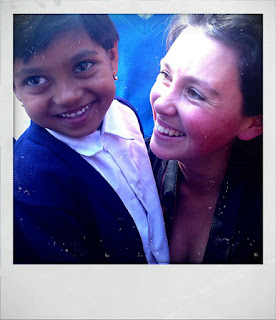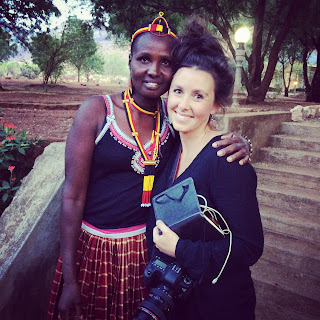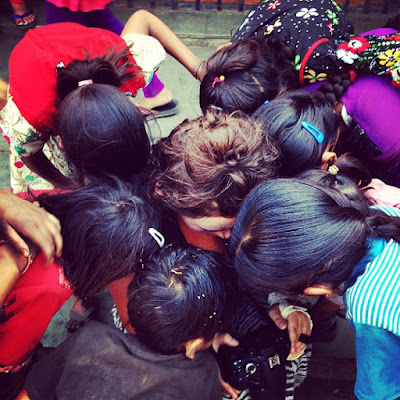At the end of this week, I’ll be finishing up my time
working with Tutapona- an organisation that provides mental health support for
war affected people. I wanted to take a moment to reflect back on the last 8
years of service with them and share some of what I’ve learnt.
I first heard about Tutapona’s work in 2010 when my
wife, Helen and I were doing a short 5-month project in Uganda, working at
Watoto’s Suubi High School. Some of the
students at the school had been abducted by the LRA (Lord’s Resistance Army) and
escaped, and were receiving group therapy from Tutapona’s co-founder Carl Gaede
and a couple of Ugandan staff. Through my relationship with these kids, I
got to hear about how critically important this support was for them and it had
a profound impact on me.

A few years later I
had the privilege of joining Tutapona’s staff. By then the focus had shifted to
refugee response work. Helen and I lived in Mbarara in South West Uganda for a
year and I spent most of my time in East Africa’s oldest refugee settlement,
Nakivale, with Tutapona’s team of mental health workers. Most of the refugees
living there had fled from the Eastern DRC or the Rwandan genocide and the
depth of suffering that they’d experienced was horrific. Murder, rape and
torture. Separated families. Children without parents.
I soon became more
aware of the vast scale of the refugee crisis. Nakivale hosted about 100,000
refugees from nearby countries. But in early 2014, Tutapona also launched field
offices in two other refugee settlements. One in Rwamwanja to support Congolese
refugees and one in the far north in response to an emerging crisis. Civil war
had broken out in the newly formed nation of South Sudan and huge numbers of
people were fleeing. Over the next three years about a million South Sudanese
people (10% of the entire population) crossed Uganda’s northern border. Tutapona
opened a new office in the far-north district of Adjumani to support some of
these people.
Trauma expert
Bessel Van der Kolk states: “Trauma is not just an event that took place
sometime in the past; it is also the imprint left by that experience on mind,
brain, and body.... It changes not only how we think and what we think about,
but also our very capacity to think.” The World
Health Organization regards mental health support as one of the most critical
development issues of our time.
Particularly for displaced people. Yet available services are typically totally
overwhelmed.
I believe the old axiom that successful organizations
have a laser-like focus. This is certainly true of Tutapona. Mental health is
the space in which Tutapona exclusively operates. Services include group and
individual therapy, tailored to different age and linguistic groups. And the
quality of support is world class. Program participants report an average reduction in trauma
symptoms of over 55% and an increase in wellbeing of more than 52%.
I can remember many conversations with people who have
attended Tutapona’s programs that bring the above stats to life.
One lady had escaped from the war in South Sudan and
was living in a refugee settlement in Northern Uganda. Her son got in a fight
at school and was killed by a boy from another tribe. She said,
“After my son died, all I wanted was for the one who killed him to remain in
prison for ever and ever. My boy was gone, and I wanted the other family
to lose someone too. When my relatives heard the news, they set fire
to the houses of the tribe who had killed him. But I remembered what
I learned from Tutapona – that revenge would only hurt more. This type of
fighting couldn’t go on – no more violence. I asked my parents to take action to call Madi and
Lutogo tribes together for a meeting so that we could say “Let not that
fighting continue, let them stop fighting”.

Most memorably, I can
remember attending GROW (an adult group therapy program) in Northern Uganda. On the last day an older woman got up to
speak. She
said, without much emotion, that a few days earlier she had been making plans
to hang herself. Her problems were ‘too much’. But she testified
that participating in Tutapona’s program had given her a new perspective and
her troubles no longer overwhelmed her. She also said that the message of
forgiveness had an effect on her. After
forgiving some people who had hurt her, she felt freedom for
the first time in many years.
I’ve
seen that good quality mental health support has the ability to awaken motivation.
It can improve relationships, support better sleep, reduce alcohol abuse and
dependency and curb violence. It can also bring hope to people with suicidal
thoughts.
Each year Tutapona’s local, trained mental health
workers support about 5,000 people across Uganda and Iraq. The total number
of people supported has now ticked well past 50,000. A remarkable number
none of us could ever have imagined all those years ago when we first began. It’s
also been encouraging seeing Tutapona become the leading mental health actor in
the Ugandan refugee response, with another significant footprint in Iraq.
Active partnerships include Save the Children, Medical Teams International and
War Child Holland with previous projects run in conjunction with Lutheran World
Federation, Food for the Hungry, Alight and the United Nations High
Commissioner for Refugees.

On Monday, I start a new job with Tearfund and
Compassion in New Zealand as their International Programmes Director. I look
forward to getting stuck in to this new project! But as I finish up I want to
say thank you to all of Tutapona’s supporters. I hope this serves as an
encouragement to continue to support this important work. To Carl and Julie and
Tutapona’s wonderful teams in the US, Canada, Iraq and Uganda thank you for
your service to war affected people.
Afoyo matek!
Tim Manson


























